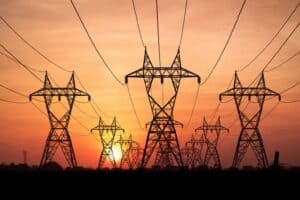Load shedding woes will push SA into transitioning to renewables faster than the rest of the world.

PwC has released a statement saying that from its research, it believes that now is the most opportune time for South Africa to make the transition to renewables and decarbonise the global economy at a faster rate than ever.
In the past year, South Africa has made some significant improvements regarding its carbon intensity, which the firm outlined.
Globally, the world reduced its carbon intensity by 0.49% in 2021.
This was less than the average decline of 1.39% per annum seen over the past 20 years due to the global economy largely returning to near pre-Covid levels of GDP output.
ALSO READ: Renewable energy for SA – expert weighs in
SA reduced its carbon intensity better than other countries
South Africa fared better, seeing a reduction in carbon intensity (TJ/GDP) of 4.61%, as economic growth (4.91% change in real GDP) was greater than the growth in energy-related emissions (0.08% increase).
Lullu Krugel, Strategy Partner and PwC Africa ESG Lead, said that this was the second consecutive year South Africa has been able to reduce its carbon intensity.
“We would like to believe that this shows that the country is reaching a point where economic growth is beginning to decouple itself from increases in energy-related emissions.
“Unfortunately, there’s still much room available for progress to be made as South Africa remains the worst performer in the G20 in terms of overall emissions intensity.”
NOW READ: Renewable energy: Good for the planet and the pockets of South Africans
The decrease in coal use was not necessarily due to the country actively trying to use less coal, but was partly a result of record electricity load shedding in 2021 due to significant breakdowns at the country’s coal-fired power stations.
The need to decarbonise faster
According to PwC, the world and South Africa now face the significant challenge of needing to achieve a global rate of decarbonisation of 15.2% per annum to limit global warming to 1.5°C — significantly more than the annual global intensity decrease of 1.4% between 2000 – 2001 recorded for the G20 countries.
Krugel says the need to decarbonise faster is not simply to protect the environment, but rather because this will have fundamental impacts on our societies.
Private sector has a key role to play in decarbonisation
From a lack of service delivery and increasing production costs, to load shedding and social unrest, the country’s operating environment has become fractured over time.
PwC says that this, however, presents a key opportunity for private businesses, who for some time have had to think, plan and operate in ways they wouldn’t necessarily need to.
The firm says that businesses are now considering shorter to longer term options to move to renewable energy and this presents a window of opportunity for the private sector to collaborate with the public sector to move the country forward.
ALSO READ: Transition from coal to renewable energy is the way to go, says Ramaphosa
Krugel says: “If approached in the correct way, these opportunities have the potential for the private sector to work with government to create a more stable operating environment.
“In the best-case scenario we could see both improved energy security, stability and growth for the business environment, and a decarbonisation of the economy. This will ultimately benefit more than just those businesses that choose to lead in this space, but the wider society, economy and environment.”
Support Local Journalism
Add The Citizen as a Preferred Source on Google and follow us on Google News to see more of our trusted reporting in Google News and Top Stories.






